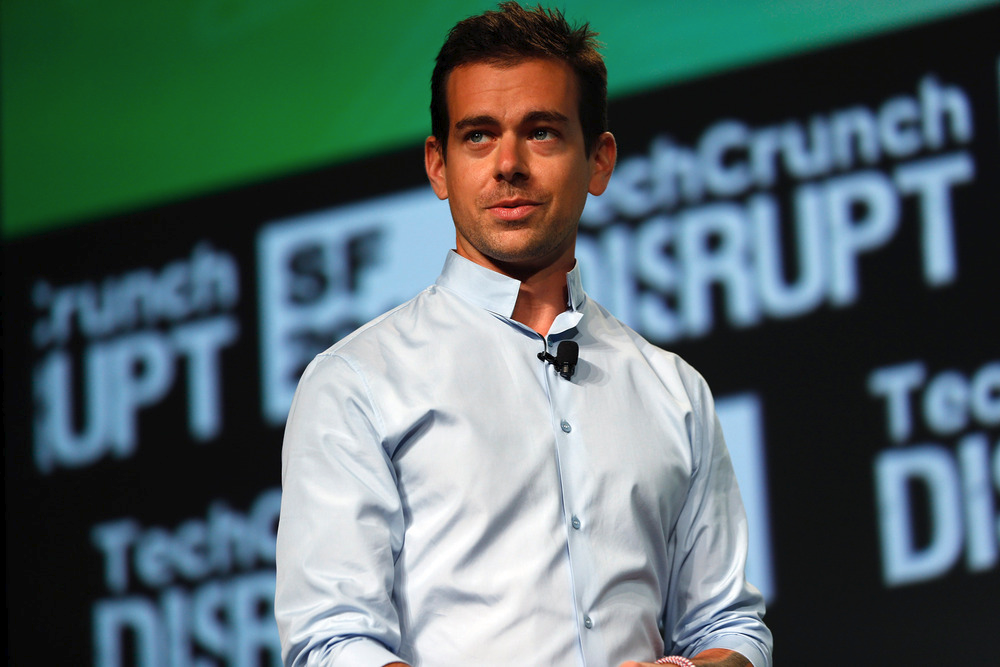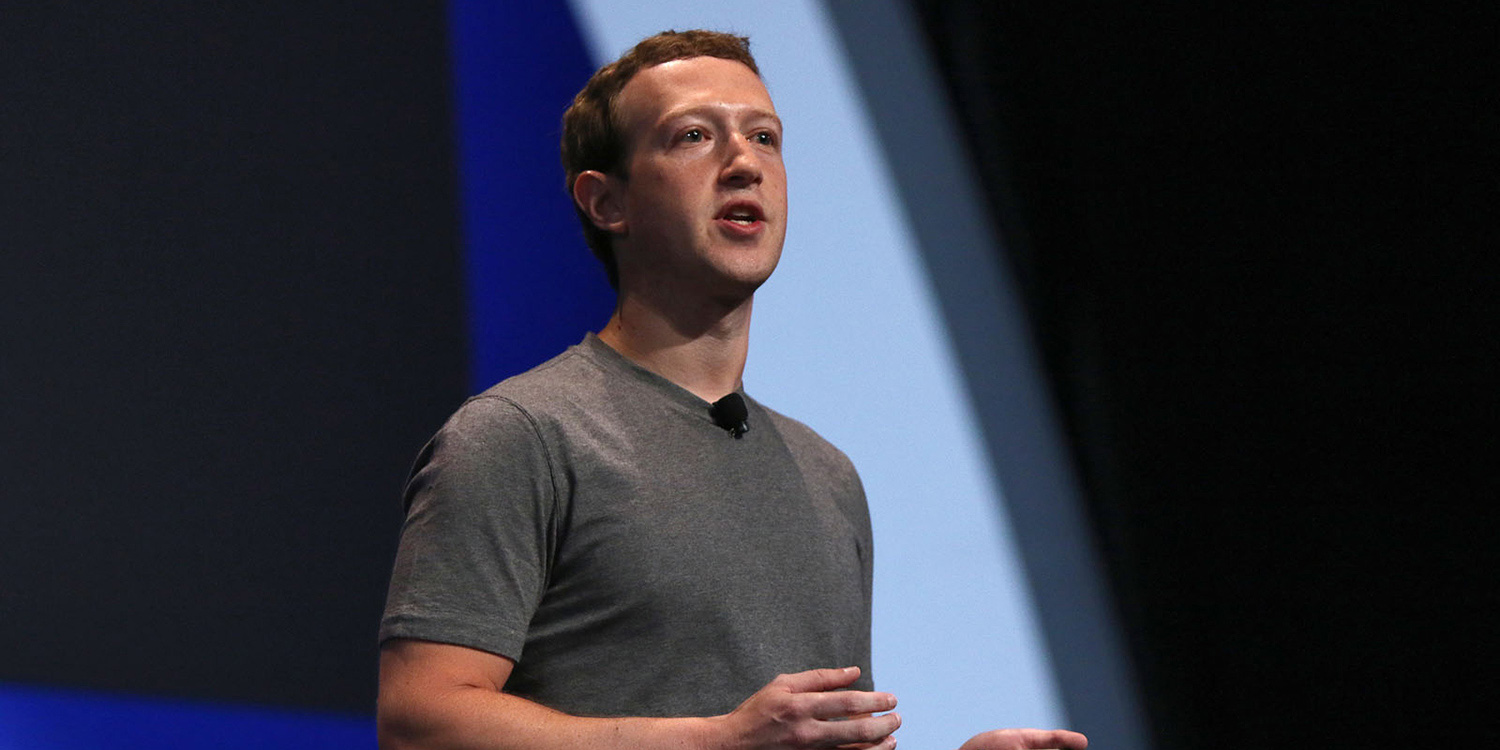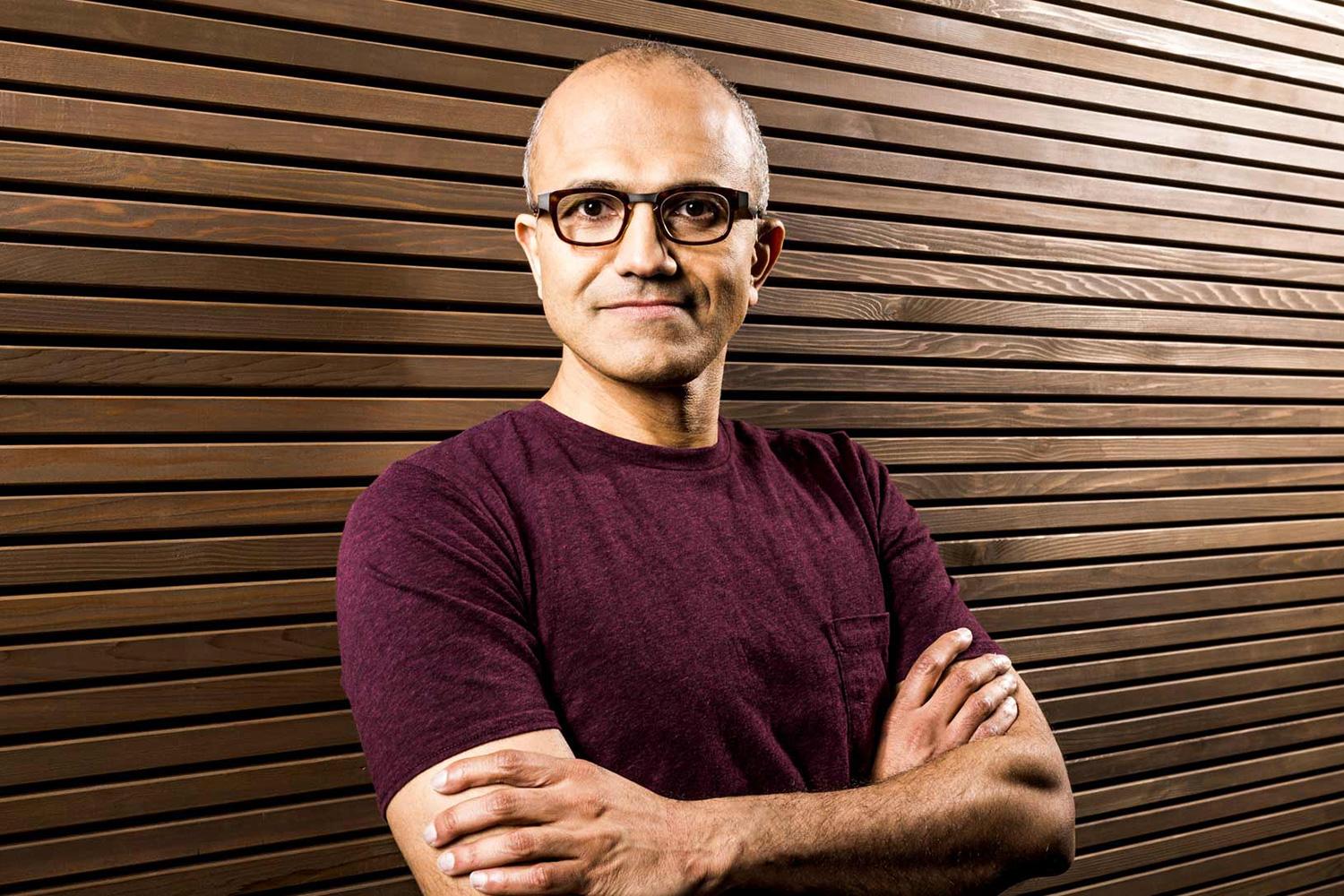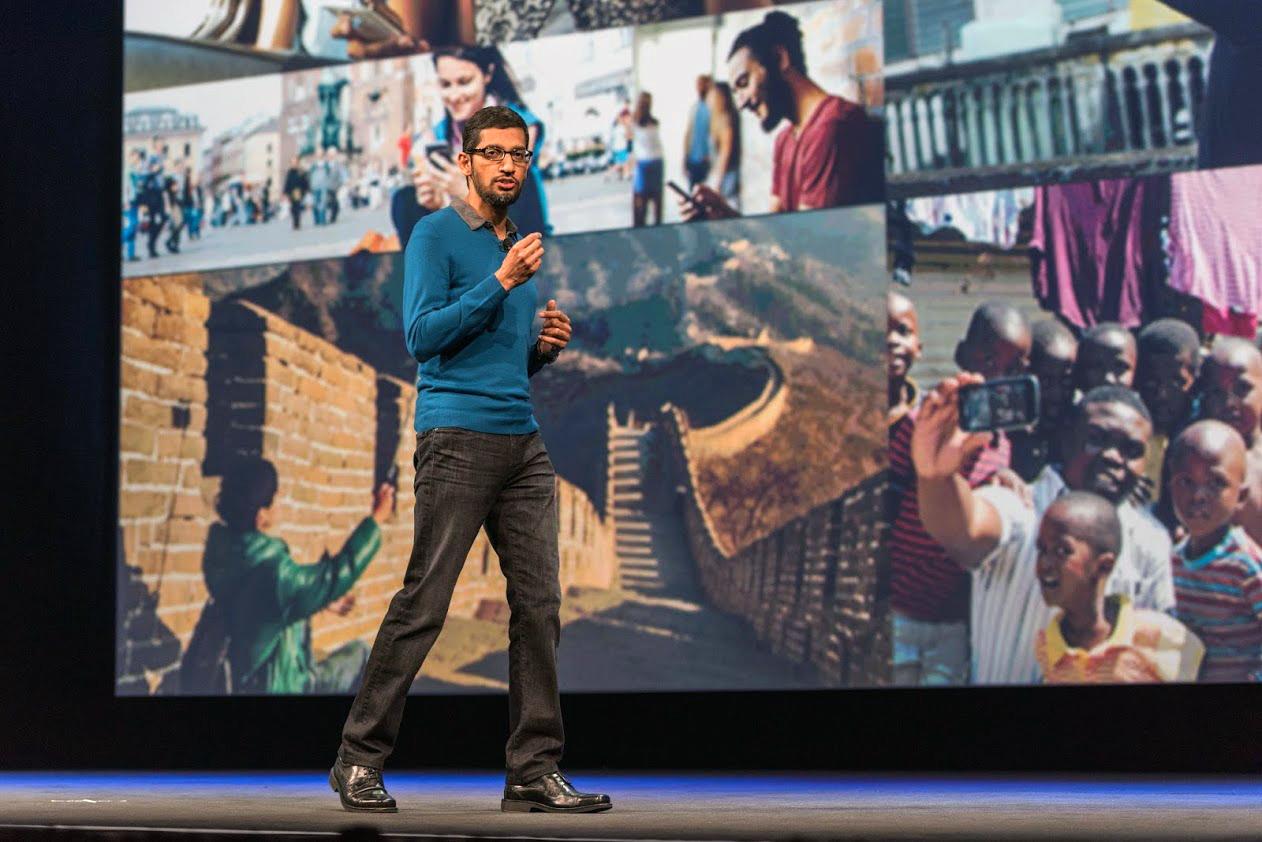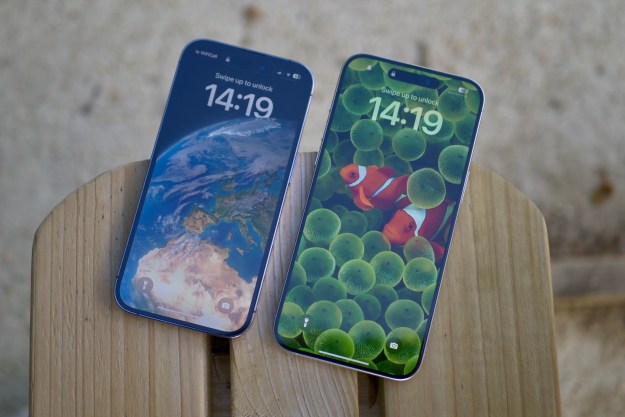
- FBI drops its fight with Apple over shooter’s recovered iPhone 5C
- Apple’s encryption fight isn’t over, and the stakes have never been higher
- Never mind, we got it! FBI claims it found a way into iPhone, cancels Apple hearing
- Apple’s Tim Cook on FBI battle: ‘We will not shrink from this responsibility’
- March 17: No one, Tim Cook declares, ‘Should have a key that turns a billion locks.’
- March 16: Apple calls government’s arguments ‘misleading’
- March 14: John Oliver sides with Apple
- March 11: Obama urges techies to compromise on encryption
- March 8: Snowden says FBI can hack iPhone
- March 4: Steve Wozniak chimes in
- March 3: Support for Apple pours in
- March 1: The debate moves to the House Judiciary Committee
- Feb. 25: Comey appears at House Intelligence Committe hearing
- Feb. 25: Apple files motion to vacate
- Feb. 25: iPhone encryption could get even stronger
- Feb. 24: Tim Cook appears on World News Tonight
- Feb. 23: Not just one phone
- Feb. 22: Tim Cook speaks out, as San Bernardino victims call for action
- Feb. 21: Apple Attorney defends the company
- Feb. 20: President Obama weighs in
- Feb. 19: Apple says the FBI changed the password, the DOJ weighs in
- Feb. 18: Biometrics? The technology of encryption
- Feb. 17: Politicians, tech companies, and others weigh in
- Feb. 16: The battle begins
A U.S. magistrate declared that the world’s biggest technology company must build a tool for the FBI to access an iPhone owned by one of the San Bernardino shooters, but the Cupertino company doesn’t want to create a backdoor into its secure system — fearing that it could get into the wrong hands. In a surprising turn of events, the Justice Department and FBI found an alternative way to get into the phone, and the case has now been dismissed. But the reverberations will echo for years to come.
Here’s everything you need to know about the controversial debate.
FBI drops its fight with Apple over shooter’s recovered iPhone 5C

The feud between Apple and the FBI ended – at least for now – on March 28 when government officials told the press that a third-party managed to unlock the San Bernardino shooter’s iPhone 5C. The FBI subsequently withdrew its case from the courts. There was no information regarding who unlocked the phone, or what was obtained from the device, although rumors quickly pointed to Israeli firm Cellebrite. The FBI said it was “premature to say anything about our abilities to access other phones,” and the Justice Department stated that the government will continue to seek digital information from suspects’ devices “either with cooperation from relevant parties or through the court system.”
Read more:
FBI drops its fight with Apple over shooter’s recovered iPhone 5C
Apple’s encryption fight isn’t over, and the stakes have never been higher

Although the FBI cancelled its courtroom showdown with Apple after finding an outside backdoor into the San Bernadino shooter’s iPhone, the debate over how far the government can worm its gloved hand into your phone isn’t over. The FBI may paint this case as a battle between privacy or security, but that is not the truth. If we sacrifice our privacy and our First Amendment rights today, we will have lost more than just peace of mind that our photos are safe and our messages are unread. We will have lost what it means to be an American living in a free society.
Read more:
Apple’s encryption fight isn’t over, and the stakes have never been higher
Never mind, we got it! FBI claims it found a way into iPhone, cancels Apple hearing

After sparring with Apple in recent weeks over the creation of a backdoor into one of the San Bernardino shooter’s iPhones, the United States government has decided to cancel its March 22 hearing with the Cupertino-based company. According to a new court filing presented Monday, lawyers for the Justice Department claim to have found an outside entity capable of unlocking gunman Syed Rizwan Farook’s now infamous iPhone. Because of the newly presented avenue, the government says it no longer needs Apple’s help in the matter.
Read more:
Never mind, we got it! FBI claims it found a way into iPhone, cancels Apple hearing
Apple’s Tim Cook on FBI battle: ‘We will not shrink from this responsibility’

Apple kicked off its media event with the elephant in the room — its battle with the FBI. “We know the iPhone is a deeply personal device,” CEO Tim Cook said to members of the media at Cupertino. “For many of us, iPhone is an extension of ourselves.” Cook said people need to decide how much power the government will have “over our data, and over our privacy.” He said Apple didn’t expect to be in this position, “at odds with our government.” “We owe it to our customers and we owe it to our country,” he added. “This is an issue that impacts all of us, and we will not shrink from this responsibility.”
Read more:
Apple’s Tim Cook on FBI battle: ‘We will not shrink from this responsibility’
March 17: No one, Tim Cook declares, ‘Should have a key that turns a billion locks.’

In a wide-ranging interview published Thursday in Time magazine, Apple CEO Tim Cook granted further insight into the company’s unyielding stance on encryption, and his own. Far from backing off or waffling, Cook reserved his strongest statements yet for his interview, doubling down on his dedication to privacy and suggesting that the FBI’s request violates the U.S. Constitution and Americans’ civil liberties.
We’ve collected the most powerful and revealing quotations from the transcript, and one thing’s for sure: The Feds have a formidable foe, and he’s not going anywhere.
Read more:
No one, Tim Cook declares, ‘Should have a key that turns a billion locks.’
March 16: Apple calls government’s arguments ‘misleading’
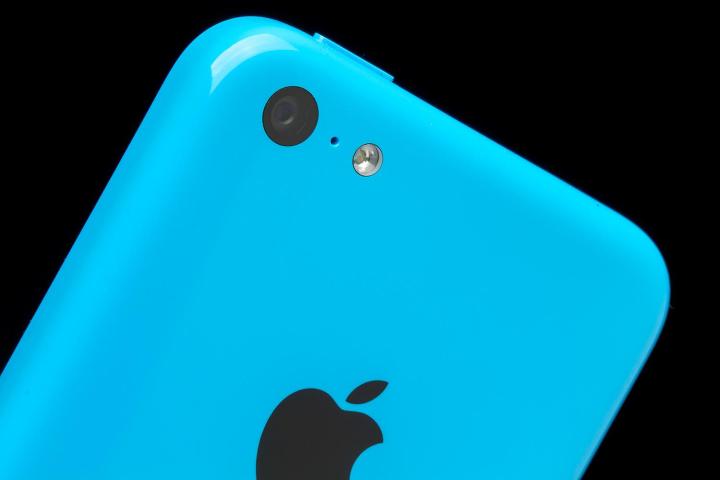
Apple’s kerfuffle with the FBI and the Justice Department appears far from over. In the company’s final brief filed ahead of its March 22 court appearance, lawyers for Apple argued that the government’s demands regarding the San Bernardino shooter Syed Farook’s encrypted iPhone would “appall” the Founders of our nation.
It said the agencies’ portrayal of the All Writs Act, a 200-year-old statute that gives courts substantial autonomy in issues of law enforcement, as an “all-powerful magic wand” was an attempt to “rewrite [the] history” of the statute, and said that the FBI was violating the rights of Apple engineers by proposing they spend “weeks” in a “super-secure facility” on behalf of the agency. And it further accused investigators of infringing on Apple’s right to due process of law by forcing it “on a mission that is contrary to [its] values.”
Read more:
In new San Bernardino filing, Apple calls the government’s arguments ‘misleading’
March 14: John Oliver sides with Apple
Last Week Tonight host John Oliver thinks encryption is vital to protect our most treasured files, and he explained — hilariously, we might add — why the Apple vs. FBI case matters.
“Encryption can protect the things most important to us: our financial information, health records, dick pics, trade secrets, classified government records, dick pics, our physical location, the physical location of our dicks, credit card information, dick pics, and pictures of our dicks,” Oliver said in the most recent episode of his show, which tackled encryption and the ongoing battle between Apple and the FBI.
Read more:
Apple vs. FBI: John Oliver knows what we’re trying to keep secret
March 11: Obama urges techies to compromise on encryption
President Barack Obama stopped by South By Southwest (SXSW) in Austin, Texas to talk about, among other things, encryption. The crux of his argument: techies shouldn’t be “absolutists” on the issue, because information in your phone shouldn’t be treated differently than information in your home.
Obama argued that if law enforcement can gain access to your home with a warrant, it should be able to do so with your smartphone, too. He said that end-to-end encryption with no access point for law enforcement helps criminals, but admitted that he doesn’t know how it would work to create a safe key and limit the number of people with access to it, so as to prevent criminals from hacking everyone’s phones.
Read more here:
Obama urges techies to compromise on encryption
March 8: Snowden says FBI can hack iPhone
At Common Cause’s “Blueprint for Democracy” conference, NSA whistleblower Edward Snowden said the FBI doesn’t need Apple to hack into the San Bernardino shooter’s iPhone. His response to the FBI’s claim that only Apple has the “exclusive technical means” to unlock the phone?
“Respectfully, that’s bullshit,” he said in a video call.
In a follow up tweet, he cited an American Civil Liberties Union article, offering one example of how the FBI can bypass Apple’s auto-erase feature to unlock the iPhone.
The global technological consensus is against the FBI. Why? Here's one example: https://t.co/t2JHOLK8iU #FBIvsApple https://t.co/mH1ZXOOQ1E
— Edward Snowden (@Snowden) March 8, 2016
And it seems as though Americans believe that the FBI may be overreaching its power by asking Apple to comply. A Wall Street Journal and NBC News poll shows that about 42 percent of people polled say Apple should cooperate, but 47 percent say think the opposite. Around 11 percent said they weren’t sure or didn’t support either position.
However, across the Atlantic, French lawmakers have backed a plan to punish corporate executives of companies that do not cooperate with requests to provide access to encrypted data in terrorist investigations.
Read more:
France wants to fine smartphone makers if they don’t hack into criminal’s phones
March 4: Steve Wozniak chimes in

Steve Wozniak, co-founder of Apple, unsurprisingly voiced his support for Apple after making an appearance on Conan. Conan O’Brien asked for his take on the Apple vs. FBI case, and Wozniak said he sides with Apple “on this one.”
“First of all I’ve always been related close to human rights, I’m one of the founders of the [Electronic Frontier Foundation],” Wozniak said on the show. He went on to say how the FBI picked a “lame” case, referring to how the San Bernardino’s shooters phone wasn’t even a personal device, but a work phone.
“Couple of times in my life, I wrote something that could be a virus that could have spread itself on Macintosh computers forever, and each time I threw away every bit of code I’d written, I was so scared inside,” Wozniak said. “You do not want to let something like that out. And once you create it there’s a good chance hackers will get into it, and then what if China says ‘Apple you’ve got to give us a backdoor so we can get into any phone, even your government officials iPhones, and inspect them any time,’ — that’s wrong.”
March 3: Support for Apple pours in
Apple has added a webpage offering access to amicus briefs from various groups in support of Apple’s stance in the ongoing case. An Amicus curiae means someone who is a friend of the court, and in submitting an amicus brief, the individual or group is throwing support to a certain side. You can read the full roundup here.
Meanwhile, Samsung, has decided to throw its lot in with Apple. “Ensuring trust in our products and services is our top priority,” a Samsung spokesman told Digital Trends in an emailed statement. “Our phones are embedded with encryption that protects privacy and content, and they do not have backdoors. When required to do so, and within the law, we work with law enforcement agencies. However, any requirement to create a backdoor could undermine consumers’ trust.”
The company’s statements align with Apple’s ethical stance, but Samsung went on to promote its encryption standards in its latest flagship devices, the S7 and the S7 Edge.
“Samsung cannot decrypt the user’s encrypted phones,” according to the company. “The encryption key is randomly generated for each user and the key is protected with the user’s password. Default encryption is turned on for Galaxy S6 and S7.”
While it supports encryption, Samsung told Bloomberg Business that it has not yet decided if the company will file an amicus brief in support of Apple.
Read more:
Who’s with Apple? From Google to victims’ families, here’s where they stand
March 1: The debate moves to the House Judiciary Committee

During a hearing titled “The Encryption Tightrope: Balancing Americans,” FBI Director James Comey testified in front of the committee, along with Apple’s senior vice president and general counsel Bruce Sewell. Sewell was joined with Professor Susan Landau of Worcester Polytechnic Institute, and New York County District Attorney Cyrus Vance Jr.
Comey said he wants Apple to remove the guard dog so that the FBI can pick the lock and get into the shooter’s iPhone. He answered many questions about the FBI’s and Apple’s motives, as well as technical questions. Apple’s Sewell reiterated apple’s positions on the case.
Read more:
The Apple vs. FBI case hits the House Judiciary Committee with a bang
Feb. 25: Comey appears at House Intelligence Committe hearing

FBI director James Comey said he doesn’t agree with Tim Cook’s assessment that creating code to unlock Syed Farook’s iPhone would be the “software equivalent of cancer.”
“The code the judge has directed Apple to write works only on this one phone, and so the idea of it getting out in the wild and it working on my phone or your phone … is not a real thing,” Comey said in a House Intelligence Committee hearing focusing on worldwide threats.
Comey bases his argument on the fact that Apple was able to unlock iPhones before 2014 and he doesn’t “remember any code getting out that let that ability loose upon the land.”
Read more:
FBI director discounts Apple’s comment that hacking a terrorist’s phone is dangerous
Feb. 25: Apple files motion to vacate

Apple filed a motion to vacate the FBI’s request to force the company to unlock Syed Farook’s iPhone, according to TechCrunch. In the motion, Apple contends the FBI is wrongfully using the All Writs Act and violating the U.S. Constitution with its request:
“No court has ever granted the government power to force companies like Apple to weaken its security systems to facilitate the government’s access to private individuals’ information. The All Writs Act does not support such sweeping use of judicial power, and the First and Fifth Amendments to the Constitution forbid it.”
Read more here:
Apple files a motion to vacate the FBI’s request that it break encryption on terrorist’s iPhone
Feb. 25: iPhone encryption could get even stronger

While this case remains undecided, Apple appears to be taking steps toward the future. In an interesting turn of events, the company hired Frederic Jacobs, who was a security engineer of Whisper Systems, developer of the Signal messaging app.
I'm delighted to announce that I accepted an offer to be working with the CoreOS security team at Apple this summer.
— Frederic Jacobs (@FredericJacobs) February 25, 2016
Jacobs later clarified that it would be an “internship position,” but declined to discuss the expected duration or his responsibilities.
Signal is famous for its end-to-end encryption, of with Jacobs had a major role in. The app is so secure that Edward Snowden admits to using Signal “every day.” It’s also one of a handful of messaging apps that’s highly rated by the Electronic Frontier Foundation, a digital rights advocacy group.
Although nothing has been said publicly, it’s believed that Jacobs will assist Apple in enhancing its encryption measures even further. According to Tim Cook, Apple currently has the ability to backdoor its software, but it’s possible the company is planning to develop a new version in which no one could create a backdoor, not even the creator. If that were to happen, the FBI wouldn’t be able to force Apple to unlock iPhones in the future.
Read more:
Edward Snowden touts Signal for your end-to-end encrypted messaging needs
Feb. 24: Tim Cook appears on World News Tonight

Tim Cook has been nothing but adamant regarding the potential problems that might stem from the FBI’s request. In a recent interview with ABC’s David Muir, he attempted to drive home what’s at risk.
“The only way to get information — at least currently, the only way we know — would be to write a piece of software that we view as sort of the equivalent of cancer,” Cook told Muir as the two sat in Cook’s Cupertino office. “We think it’s bad news to write. We would never write it. We have never written it — and that is what is at stake here.”
Cook also reiterated Apple’s initial compliance with the government. “We gave everything that we had [to the FBI],” he said. “We don’t know that there’s any information on the phone. We don’t know whether there is or there isn’t, and the FBI doesn’t know. What we do know is we passed all of the information that we have on the phone and to get additional information on it or at least what the FBI would like us to do now would expose hundreds of millions of people to issues.”
Cook quickly went on to stress the complexity of the issue and how it could restrict the civil liberties of Apple’s customers. “If a court can ask us to write this piece of software, think about what else they could ask us to write — maybe it’s an operating system for surveillance, maybe the ability for the law enforcement to turn on the camera,” Cook said. “I don’t know where this stops. But I do know that this is not what should be happening in this country.”
Feb. 23: Not just one phone

The FBI claims it wants Apple to unlock only one iPhone, but the Justice Department is attempting to force Apple to unlock and extract data from about a dozen other iPhones. People familiar with the matter told The Wall Street Journal that the cases aren’t connected to terrorism and the iPhones involved have less security than Farook’s 5C. Prosecutors cite the 18th century All Writs Act in these cases, too.
In another unrelated case, Federal prosecutors in New York are battling Apple over an iPhone that was seized during a drug investigation. A letter filed with U.S. Magistrate Judge James Orenstein on Feb. 22 implies the existence of around a dozen other cases without getting into specifics.
“In most of the cases, rather than challenge the orders in court, Apple simply deferred complying with them, without seeking appropriate judicial relief,’’ the prosecutors wrote.
In another related filing, Apple listed 12 other cases since October 18, 2015, in which the FBI has compelled the company to unlock eleven iPhones and one iPad. Apple objected to ten of them and is awaiting further information on the remaining two. A table was obtained by Mashable.
The judge is now asking whether it was legal for the government to force Apple to pull data from a locked phone, which could be an indication that he is leaning towards the privacy side of the fence.
Feb. 22: Tim Cook speaks out, as San Bernardino victims call for action

In the email titled, “Thank you for your support” Apple CEO Tim Cook noted that he sincerely believes the best solution is a proactive one, and that the U.S. government should create a commission to further discuss and reckon with the issue between law enforcement’s access to technology and American civil liberties.
Apple also launched a FAQ page on the issue, clarifying that it will not willingly create anything for the FBI akin to a “master key” that can be used to access any iPhone. “The only way to guarantee that such a powerful tool isn’t abused and doesn’t fall into the wrong hands is to never create it,” the company says.
Meanwhile, most of the families who lost loved ones in San Bernardino are on the FBI’s side. However, Carole Adams, who tragically lost her son, Robert Adams, at the hands of Syed Rizwan Farook and his wife is in full support of Apple.
Adams told the New York Post: “I think Apple is definitely within their rights to protect the privacy of all Americans … This is what makes America great to begin with, that we abide by a constitution that gives us the right of privacy, the right to bear arms, and the right to vote.”
Adams made it clear that getting into Farook’s iPhone is important, but she thinks it needs to be done without putting others at risk.
Read more here:
Apple CEO Tim Cook opens dialogue with the public, as victims’ families speak out
Feb. 21: Apple Attorney defends the company

Complying with the FBI’s request could “destroy the iPhone as it exists,” said Ted Olson, Apple’s lead attorney, during an appearance on ABC’s “This Week” on February 21. He then doubled down on Tim Cook’s previous comments that a backdoor opens security holes, which would affect every iPhone and could spur abuse from foreign governments.
Olson reiterated the company’s assistance in the past, and that Apple and Tim Cook have the “the greatest respect” for the FBI. However, the company “has to draw the line at recreating code, changing its iPhone, putting its engineers and creative talents to destroy the iPhone as it exists. Apple has a responsibility to maintain the trust and faith of millions of people who have depended upon Apple to produce a product that protects their privacy, their intimate personal life. This is a Pandora’s Box.”
Feb. 20: President Obama weighs in

The Obama administration also chimed in and told the U.S. magistrate judge, who issued the court order, that it is willing to let Apple keep possession and destroy the software created to hack into the San Bernardino shooter’s phone, according to the Associated Press.
“Apple may maintain custody of the software, destroy it after its purpose under the order has been served, refuse to disseminate it outside of Apple and make clear to the world that it does not apply to other devices or users without lawful court orders,” the Justice Department told Judge Sheri Pym, according to the Associated Press. “No one outside Apple would have access to the software required by the order unless Apple itself chose to share it.”
Furthermore, prosecutors aren’t buying Tim Cook’s argument that Apple is protecting the privacy of all its customers. The filing argues that Apple seems more concerned for its “business model and public brand marketing strategy.” Decker also noted that the original order allows Apple to retain custody of the software that would be developed to decrypt the iPhone. The company even has a right to determine how it helps the government in its investigation.
According to Tom Mrozek, a spokesman for the U.S. Attorney’s Office for the Central District of California, a federal court hearing is scheduled for March 22 in California. The Justice Department’s motion to compel did not offer any penalties if Apple doesn’t comply, according to Reuters. The Justice Department also declined to comment on what recourse its seeking if any. Interestingly enough, the prosecutors acknowledged that the filing “is not legally necessary.”
Feb. 19: Apple says the FBI changed the password, the DOJ weighs in

It appears the reason for the entire battle between the FBI and Apple is the fact that the Apple ID password on the iPhone in question was changed less than 24 hours after the government took possession of it. A senior Apple executive told reporters during a conference call on Friday, Feb. 19 that if that hadn’t happened, the company wouldn’t need to create a backdoor into the device, as the information would have been easily accessible via iCloud.
According to the unnamed executive, Apple was in discussions with the FBI since early January and proposed four different ways to recover the information. Apple even sent engineers to try these methods.
The next day, the FBI confirmed it did change the password: “The FBI worked with San Bernardino County to reset the iCloud password on December 6th, as the county owned the account and was able to reset the password in order to provide immediate access to the iCloud backup data.”
However, the FBI doesn’t believe this has any affect on the fact that it wants the data on the phone, stating the reset “[does] not impact Apple’s ability to assist with the the court order under the All Writs Act,” and adding that “the government’s objective was, and still is, to extract as much evidence as possible from the phone.”
Read more:
Apple says the FBI changed terrorists’ iPhone password
Feb. 18: Biometrics? The technology of encryption

In this case, the FBI has to rely on cracking the phone’s encryption, because Farook’s iPhone 5C doesn’t have a fingerprint scanner. If the device were an iPhone 5S, 6/6Plus, or 6S/6S Plus, however, the FBI may have considered using the dead suspect’s fingerprint to unlock the device, legal experts told Forbes.
“Fingerprint evidence –- unlike a password –- is physical evidence that can be compelled with a court order, overriding the objections of an accused or the next of kin of an accused,” Andrea Matwyshyn, Northeastern University professor of law and a visiting research collaborator at the Center for Information Technology Policy at Princeton University told Forbes.
Marina Medvin, owner of Medvin Law, told Forbes that although forcing a living suspect to give up their fingerprint may violate 4th Amendment privacy protections, the amendment doesn’t apply to the dead.
What of encryption itself? Understanding how it works in detail requires mathematical knowledge that most people simply don’t have; we won’t try to cover every step (but read more juicy info here).
The AES encryption (Advanced Encryption Standard) used on the iPhone in question in this case is 256-bit AES encryption, which is very strong. No computer currently in existence can break 256-bit AES through brute-force even if it started working on the problem at the beginning of the universe. In fact, it would take hundreds of billions of years for a modern supercomputer to crack 256-bit AES just by guessing.
Read more here:
Even the FBI can’t defeat good encryption – here’s why it works
Feb. 17: Politicians, tech companies, and others weigh in

A number of politicians, tech CEOs, privacy advocates, human rights’ groups, and the shooting victims’ families quickly spoke out on the Apple vs. FBI case. Everyone from Donald Trump and Glenn Beck to Edward Snowden and Sundar Pichai has weighed in on the debate. You can read all of the statements here.
Read more:
Apple vs. FBI: Tech CEOs, politicians, and advocates comment
Feb. 16: The battle begins

On Feb. 16, U.S. Magistrate Judge Sheri Pym for the Central District of California ordered Apple to disable the iPhone’s auto-erase function, a feature that deletes a smartphone’s data after 10 failed passcode attempts. This would help the FBI gain access into San Bernardino shooter Syed Rizwan Farook’s phone to see who he and his wife were in contact with, and to confirm any ties to ISIS. The news exploded across mainstream media outlets, stirring up over a million tweets and ultimately drawing a response from CEO Tim Cook.
Apple doesn’t have the means to disable the auto-erase function, which introduced tougher security measures in iOS 8 following the NSA-leak by Snowden, and Cook immediately responded to the judge’s order on Feb. 17 via a letter to Apple customers denying the court order and urging consumers to take a stand for encryption and privacy. While Apple cannot disable the function, Cook says the U.S. government asking Apple to create a backdoor to the iPhone is something the company considers “too dangerous.”
“The FBI wants us to make a new version of the iPhone operating system, circumventing several important security features, and install it on an iPhone recovered during the investigation,” Cook said in the letter. “In the wrong hands, this software — which does not exist today — would have the potential to unlock any iPhone in someone’s physical possession.”
Court records state that Apple needs to write to code to create a Software Image File the FBI can use on subject devices it requires access to. The worry is that this new method would be duplicated in some way, or get into the wrong hands, risking user privacy. “The SIF will be coded by Apple with a unique identifier of the phone, so that the SIF would only load and execute on the subject device,” the court order states.
Read more
Read Tim Cook’s strong stance on privacy and encryption
Editors' Recommendations
- An Apple insider just revealed how iOS 18’s AI features will work
- We now know when Apple is adding RCS to the iPhone
- UPS worker accused of nabbing $1.3M worth of iPhones and other Apple gear
- Apple Sports app looks to rule live scores and stats on iOS
- iPhone Flip: what we know about Apple’s first foldable phone

